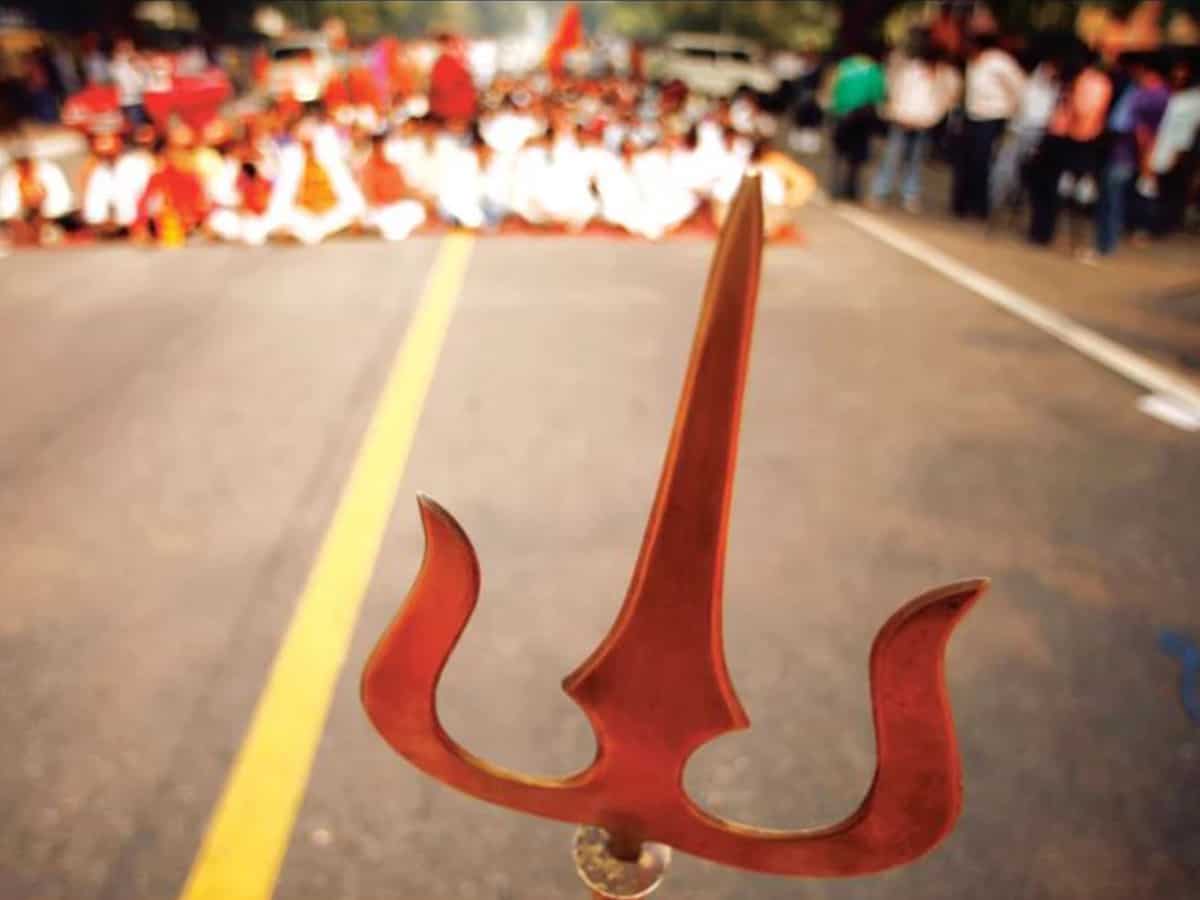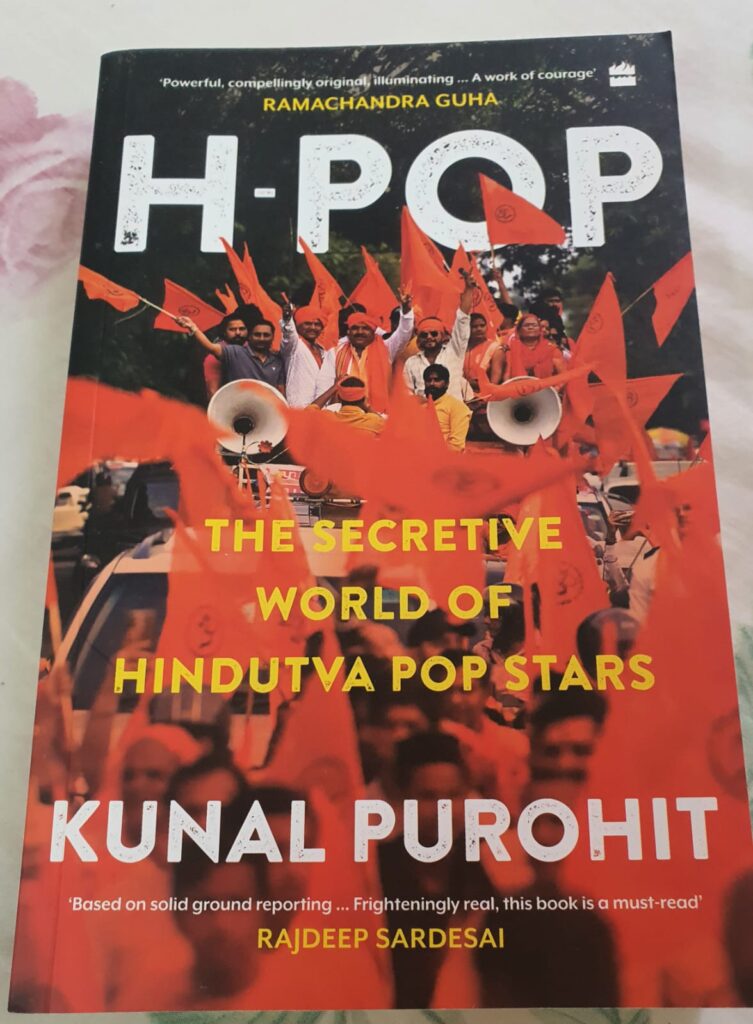
By Mohammed Amaan Khan
The erosion of freedom is a gradual encroachment, halting just before the point of protest, and then resuming, perpetuating a cycle of intrusion. The danger lies not just in the immediate impact but in the cumulative effect of allowing each small infringement, ultimately taking away individuals miles away from their initial liberties. In India’s cultural history, a troubling transformation is underway as Hindutva Pop Culture, or H-Pop, quietly infiltrates the nation’s social fabric. A departure from the harmonious tunes that once celebrated India’s unity in diversity, this emerging genre is taking small, calculated steps to reshape narratives, normalizing divisive ideologies that were once confined to closed doors.

Historically, India thrived on cultural songs and slogans promoting unity among diverse communities.
Phrases like ‘Hindu, Muslim, Sikh, Isa’i, aapas mein haiN bhai-bhai’ (Hindu, Muslim, Sikh, and Isa’i, are all brothers) and cultural symbols like ‘Ganga Jamuna’ and ‘Amar, Akbar & Anthony’ resonated deeply within the nation. Unfortunately, these narratives have faded, leaving a void filled by a new wave of Pop Culture that intertwines with subliminal or overtly communal dialogue. These communal ideologies crept their way out of the closed doors, sneakily into the streets of remote towns in India.
In the shadows of mainstream urban media, H-Pop has found its niche across India’s towns, influencing millions both online and offline. From catchy songs with communal lyrics to poetry recited in traditional gatherings, and social media influencers shaping opinions with their version of ‘breaking news’ things, which were once conspiracy theories, are being legitimised by books and poetry. H-Pop seamlessly integrates Hindutva’s core beliefs into popular culture.
The genre’s lyrics, while catchy, carry troubling undertones that propagate Islamophobia through its derogatory words, targeting minorities without making any headlines. These lyrics not only normalise hate but also foster an environment where prejudiced sentiments are perpetuated as part of daily life.
What is particularly insidious about the Hindutva Pop stars is that they deny any political affiliations, instead, these artists often present themselves as ‘Desh-bhakts’ or patriots, enhancing their credibility beyond the realm of political activism. Their music is popular at large gatherings during festivals in remote villages, plays in public transportation, and serves as the caller tune for many, acting as a constant reminder of their prejudice and biased attitudes toward other communities.
The online presence of H-Pop is equally alarming. Through social media, these songs gain massive scalability and viral traction, earning artists followers and substantial ad revenues. These Pop stars understand the Hindutva economy and the audience to which it caters. The algorithm on social media makes sure that it reaches an audience with no critical thinking or objective reasoning. This popularity, in turn, enables them to host larger offline events, backed by corporate sponsorships eager to tap into their expansive fan base.
Kunal Purohit, author of the book ‘H-Pop,’ delves deep into this phenomenon, examining the artists, their audience, and the implications for Indian society. The book sheds light on the integration of communal ideologies into mainstream pop culture, posing a potential threat to the social harmony that India has long cherished. This subtle erosion of unity and promotion of divisive ideologies through H-Pop is a cause for concern. The genre not only instigates reactions from marginalized communities but also operates as an intelligent medium, allowing communalism to go unnoticed amidst the mainstream media and fabric of Indian culture. As we witness this silent takeover, it becomes imperative to question the long-term consequences and take collective action to preserve the essence of ‘Unity in Diversity’ that has defined India for centuries.
Mohammed Amaan Khan is a Research Fellow at the Centre for Development Policy and Practice (CDPP) and an aspiring economist who graduated with honours from Symbiosis School of Economics, earning a B Sc in Economics.
